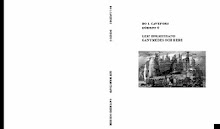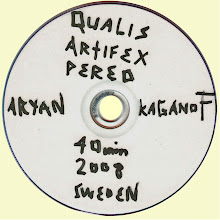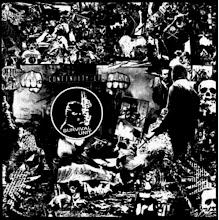'
OXÖGAT #11.
THOMAS J. REESE, S.J.
Inauguration Day essay: Big hopes, bigger problems
As Barack Obama prepares to assume the office of the president, the nation and the world wait with hopes that far exceed anything that is humanly possible to fulfill. The world longs for peace, yet there is war in Iraq and Afghanistan; Osama bin Laden is still at large; Africa is torn apart by tribal factions; India and Pakistan are threatening one another; and Israel bombs Palestinians in response to attacks from Hamas. Oh yes, don’t forget the icecap is melting.
And that is just foreign policy.
Meanwhile, the economy is in free fall. Despite the lowest interest rates in history for banks, it is hard to get a loan from any of them. Unemployment is rising; retail sales are collapsing; foreclosures are at unprecedented levels; consumer and governmental debt is too high; the auto industry requires a bailout; and losing 30 percent of your portfolio is considered normal. The only thing keeping the system from total collapse is foreigners’ willingness to loan the U.S. government money at low interest rates because they can’t find any safer place to put their money.
Obama is expected to fix all of these problems and return us to “normal” within a year. If it takes longer than a year, he will be considered a failure.
In some ways, Obama has become a victim of his own success. As a campaigner, he inspired thousands of people to become active in the political process. His speeches gave hope to people who had been disillusioned too many times by politicians whose personal or political failings had seemed like betrayal. His success has been a political miracle. We want another miracle.
Obama acknowledged these unrealistic expectations when at the Al Smith Dinner, he joked, “Rumors to the contrary, I was not born in a manger.”
And yet, come Jan. 20, he is going to have to act without any hesitancy in dealing with the problems on the president’s desk.
Obama plans major cuts to taxes and spending on infrastructure and other projects. The competition for this money has already begun.
Everyone wants a share. The stimulus package has to be huge to get the economy going again, but it has to end before inflationary expectations push up interest rates. This would have been much easier if we had not run up debts during the good times. Instead, we spent like drunken sailors on wars, tax cuts and consumer items.
American politicians and citizens never accepted the second half of Keynesian economics. Keynes prescribed deficit spending during economic downturns, but he also recommended surpluses and paying down debt during good times. The greatest failure of the Bush administration was its failure to be fiscally responsible, the one thing Republicans could be depended on to be in the past. Hoover at least did not double the U.S. debt during the roaring ’20s.
In mid-December, a small group of Catholic activists met with the Obama transition team. They too had their wish list based on Catholic social teaching and a commitment to the common good: international development and trade, health care reform, comprehensive immigration reform, domestic policy and poverty reduction, and the environment.
Their proposals make sense in terms of short-term stimulus (poor people spend additional money quickly because they have to) and long-term consequences (improved health care and environment). They also make sense in terms of justice and the common good. The poor received little attention during the campaign, which was all about the middle class. Reminding politicians and citizens about the poor is a responsibility of churches and religious organizations.
But Obama’s greatest challenge is to convince us that things cannot return to the way they were. What America really wants is a booming economy where consumers can spend without thinking or remorse. They want homes purchased for a couple hundred thousand dollars to be worth a million when they want to sell. They want a stock market that continues to go up. They want cheap gas and big, fast cars. They want cheap goods from China and good jobs at home.
Can Obama tell us that those days are over? No, he can’t. It would be political suicide because we are not ready to hear the truth. For example, for more than 30 years, every economist worth his degree has said that we need to increase taxes on oil and gasoline in order to encourage conservation and efficiency. But no politician has been willing to take on the American consumer. Obama’s first priority is to get the economy growing again even if it is growing in the wrong direction.
When Franklin Roosevelt took over at the beginning of the Great Depression, he recognized that if he failed, the world could turn to either fascism or communism as its alternative. If America fails in the face of the current economic meltdown and global warming, there will be alternatives available. China presents the authoritarian capitalist model, where freedom is sacrificed for stability and growth. Religious fundamentalism in Islam presents another model: authoritarian equalitarianism, where freedom is sacrificed for a sense of equality.
Americans prize freedom, but as John Paul II constantly reminded us, with freedom comes responsibility. America has been irresponsible with its freedom, its power and its wealth. We are beginning to pay the price of that irresponsibility. To think that we can resurrect ourselves in a short time after years of foolishness is evidence that we still don’t get it. We have not confessed our sins, let alone repented.
What is needed is a religious conversion, which will not come out of Washington. Sadly, the churches are so consumed with internal fights that they have little energy for preaching the Gospel, and yet that is what is needed: love of neighbor, sacrifice, poverty of spirit. How do we move from an economy based on our vices (greed, covetousness, gluttony, lust) to an economy based on virtue?
In the meditation on the “Temporal King” in the Spiritual Exercises, St. Ignatius presents an inspiring human leader who promises to lead his followers to victory. Who would not follow such a leader? But he does not stop there. Ignatius asks: How much more worthy of consideration is Christ our Lord? As we watch our new temporal leader being sworn into office, we can ask what we can do to help him be successful, and the answer might be surprising. It might include opening our hearts to another leader who has been there all the time.
+ + +
Jesuit Fr. Thomas J. Reese is senior fellow at the Woodstock Theological Center at Georgetown University in Washington.
21.1.09
Subscribe to:
Post Comments (Atom)

































No comments:
Post a Comment